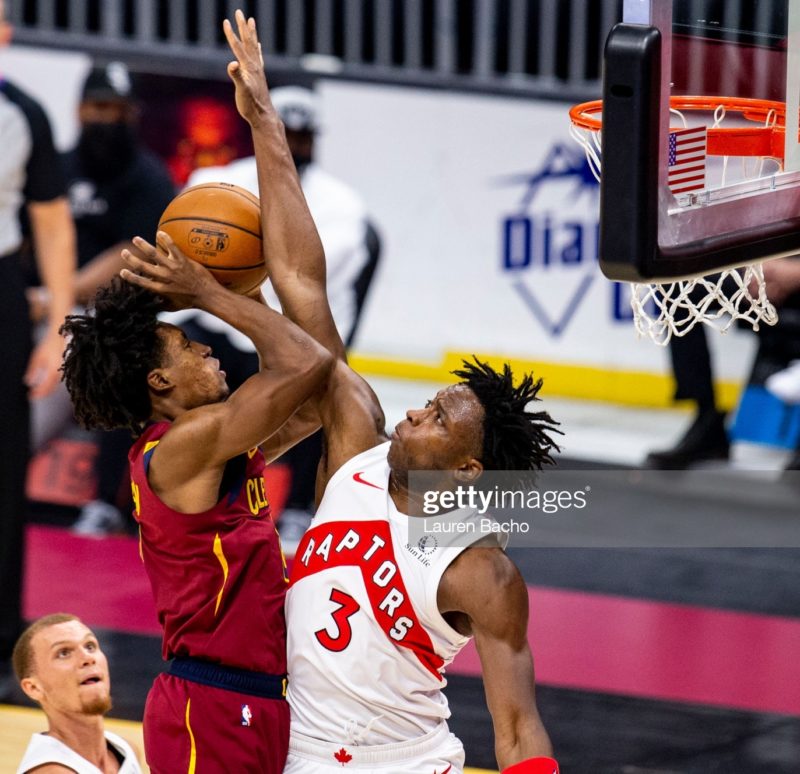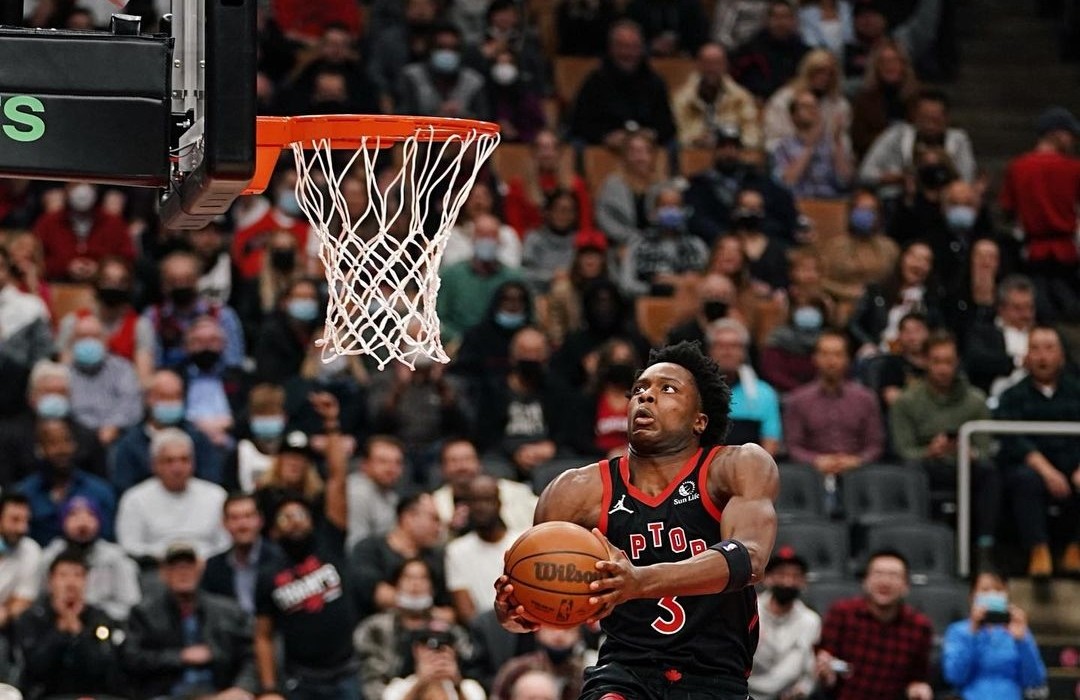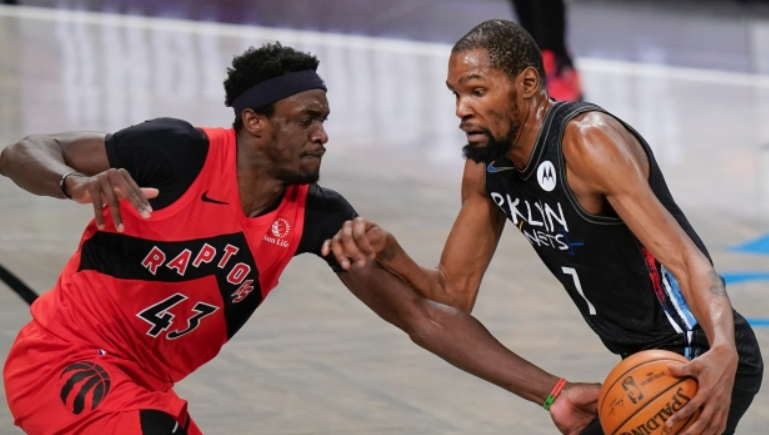The Toronto Raptors’ 102-101 loss to the Cleveland Cavaliers is as much a question as it is an answer.
As in, what matters more: That OG Anunoby missed a little baseline fadeaway to win the game, or that he played an altogether excellent game both scoring and creating for his teammates? That Toronto lost to an inferior Cleveland team, or that they forced 18 turnovers and gathered 19 offensive rebounds, adding together to mean that the Raptors had 17 more shots than the Cavaliers? That Toronto lost an extremely winnable game, or that they — after a five-game winning streak — were that close to winning such a game in the first place?
Of course, there are other questions that creep in to cross-examine the original questions: Does it matter more that Scottie Barnes had a tip-in to win the game or that he missed the tip-in to win? Should a foul have been called on Toronto to give Cleveland its silly lead to begin with? Those questions are fluke, not deserving of serious thought in terms of predicting the future for Toronto, but that doesn’t make those facts any less frustrating.
The short answer to the above questions is that it’s all fine. Anunoby played well, which matters much more than his miss to end the game. Toronto’s process in forcing turnovers and winning on the glass matters more than the result. The fact that they’ve been winning — and had a shot at continuing the winning streak — matters more than the loss. All that to say: Toronto is a good team, and a loss to Cleveland doesn’t change that. In terms of prediction, this loss doesn’t change any expectation of the Raptors continuing to win games in their own unique tactical style. That’s the short answer.
The long answer is both more complicated and not at all. Sure, Fred VanVleet had a poor shooting night, finishing 6 for 18 on the night. He created only jumpers for himself on the night and didn’t attempts a single shot at the rim. Many of his attempts were wild, off-balance heaves from the midrange that sought more to draw fouls than to create points. The effort followed one of the best games of his career, when he dominated in the midrange and created for Toronto extremely high-value shots on nearly every halfcourt offensive possessions. It’s surely disappointing that he played poorly, but he did so against a Cleveland team that started two seven-footers and prioritizes the rim on both ends. Toronto can expect VanVleet to make more jumpers going forward, but such a matchup is about as difficult as it can get for Toronto’s lead guard.
Similarly, Scottie Barnes had a rough night as he returned to play after missing a few games with a sprained thumb. He started three for three and then proceeded to shoot four for 16 following, as he — like VanVleet — missed a parade of midrange attempts. Barnes was excellent in many ways, including as a rebounder and passer, but he couldn’t convert on shots that he previously made with elite touch. Chalk it up to rust, but he needs to attempt more (a single!) triple going forward. Toronto’s spacing issues were a key reason why they couldn’t create any shots at the rim.
To that point, Toronto should probably be most concerned that it seemed to create only midrange attempts. Per Cleaning the Glass, 42 percent of their shots game from the midrange, a 90th-percentile rate. They attempted few layups and even fewer triples. That’s an offensive process failure, but it is forgivable considering how excellent their offense has been during their five-game winning streak. They attempted almost no free throws and couldn’t create free points in any other way. They’ve been a good — not great — halfcourt offensive team in recent games. A stinker against Cleveland doesn’t undo the gains they’ve made there recently, but it does lend credence to the already reasonable takeaway that halfcourt offense would be Toronto’s greatest weakness.
In the long term, the Raptors needs to find a more efficient transition offense, and they need to create more shots at the rim. Fortunately — and stop me if you’ve heard this before — Pascal Siakam is on his way. He is an elite answer to the many questions that plagued Toronto against Cleveland.
So what matters more: That Toronto’s winning streak is over, or that it existed in the first place? Certainly the latter. Toronto played a poor game against Cleveland, yet they lost because they missed shots they’ve previously made and also in part because they got unlucky. None of their weaknesses against Cleveland should have been surprises, and similarly neither were their strengths. Their defense stood strong, and they won the areas of the game — offensive rebounding and turnovers — that they prioritize. Trust the process. Their strengths should generally outweigh their weaknesses, and thus going forward Toronto should remain an excellent team.



